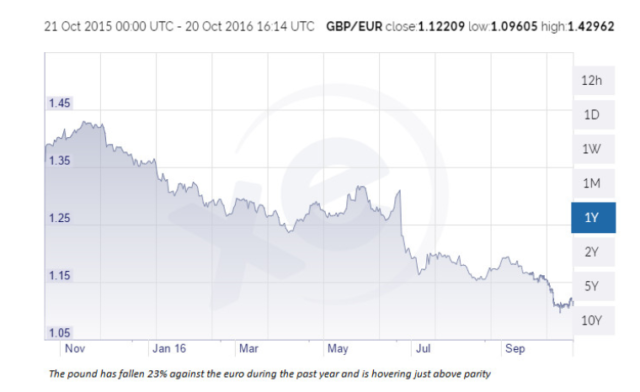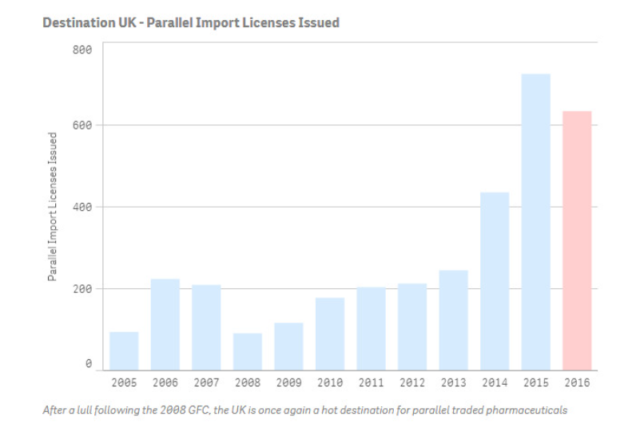The UK with its high drug prices has long been a lucrative market for parallel imported pharmaceuticals. But with the pound at a 6-year low against the euro and Brexit uncertainty lingering, how will this influence the trade flow and what impact are we likely to see on applications for new parallel distribution notices?

A weak pound has hurt parallel traders in the past. Imports dropped sharply when the pound hit parity with the euro following the 2008 financial crisis, and as the pound once again draws closer to the euro, the often lucrative UK market may quickly loose its shine.
Many parallel traders have made significant investments in staff, storage and IT costs to facilitate their hunt across Europe for the best deals. After repackaging pharmaceuticals to meet local guidelines there is a fine line between a profitable and non-profitable opportunity, and the tight margins that remain will only come under more pressure if the pound continues its slide. Not to mention the risk parallel importers face of committing to stock purchases in euros while the value of the pound remains volatile.

In addition to this, uncertainty created by the recent Brexit vote has left a lingering threat of renewed trade barriers between the UK and the rest of the European bloc. Theresa May has taken the helm and promised to trigger Article 50 early next year, but what two years of negotiations may produce is anyone’s guess. Pharmaceutical companies and parallel traders alike will be eagerly awaiting both a firm conclusion to the Brexit fallout and some stability in the pound.
Stay informed of the products parallel traders are intending to trade by monitoring the approval of new parallel distribution notices with Pradar. Register for access at pradar.co.uk.
Pradar – Parallel Trading Insights
More Insights
-
Qlik to Power BI Migration

-
Client Product Reporting in FX Sales & Trading

-
Consolidating Financials for Multiple Acquisitions

-
How Machine Learning Can Transform the Financial Sector in 2024

-
Tracking Key Business Metrics using Power BI

-
Update on the future of Talend Open Studio

-
Multinational Bank’s Need of Fluid Understanding for their FX Pricing

-
Building a Single View of a Customer’s Portfolio to Support Regulatory Compliance

-
Exploring Change Data Capture (CDC)

-
🔍 Excel vs. BI Tools: Why It's Time to Evolve Your Data Strategy
